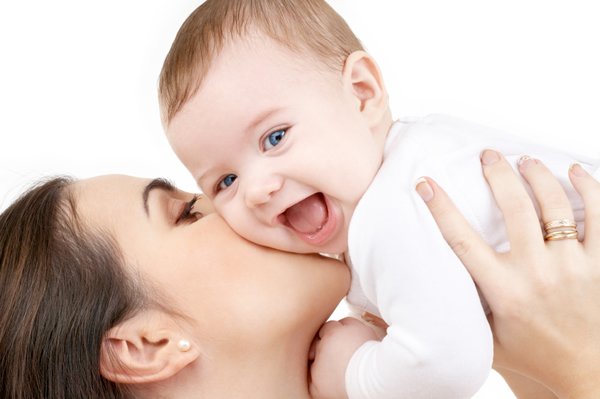
A new research shows that the size of a woman’s brain grows after their baby is born with increased growth linked to the mother’s enthusiasm and affection for their child.
Brain scans taken of pregnant women before and after giving birth showed an increase in their mid-brain after childbirth, according to the report completed at Yale University.
“We observed small but significant increases in the volume of gray matter in the brain,” said study co-author Dr. Pilyoung Kim to My Health News Daily.
According to the report published in Behavioral Neuroscience in October of 2010, for adults, gray matter’s volume typically does not change over a few month period, like those new mothers studied, making the findings so out of the ordinary.
Typically that kind of growth isn’t seen without a brain experiencing significant learning, injury, illness, or undergoing a major environmental change.
Specifically the researchers saw its growth to the hypothalamus, substantia nigra and amygdala, parietal lobe and prefrontal cortex.
Those regions are responsible for one’s emotion, reasoning and judgement, the senses, and reward behavior, according to the report.

With their findings, mothers who showed more enthusiasm over their birth, describing their child using words as special, beautiful, ideal, and perfect, were found more likely to show an increase in their mid-brain opposed to others.
Dr. Pilyoung Kim, who’s currently with the National Institute of Mental Health in Washington, hopes the findings can further help scientists learn what motivates some mothers more than others in caring for their children.
“We’re currently researching whether giving moms oxytocin, a hormone that triggers a reward response in the brain, could influence their response to their child,” Dr. Lane Strathearn, a developmental pediatrician at Baylor College of Medicine in Houston, Texas, told My Health News Daily.
Dr. Pilyoung Kim’s findings further correlate to a previous report undertaken by Dr. Lane Strathearn in 2008 that showed that a baby’s smile lights up a mother’s reward centers in her brain, like the prefrontal cortex found in the 2010 study.
“A baby’s smile is a very powerful stimulus,” said Dr Stathearn speaking to ABC News.
“It makes sense biologically. Babies are completely and utterly dependent on their caregivers. It makes sense that nature would build in a system that would reinforce that relationship,” she said.
One question researchers on the brain’s growth say they are still working to figure out, however, is the reasoning behind the findings.
“We don’t know whether it’s the experience that changes the brain, or the brain that changes the experience,” said Dr. Pilyoung Kim.
Her team suspects a woman’s increase in hormones like estrogen, oxytocin and prolactin as possible factors as well.